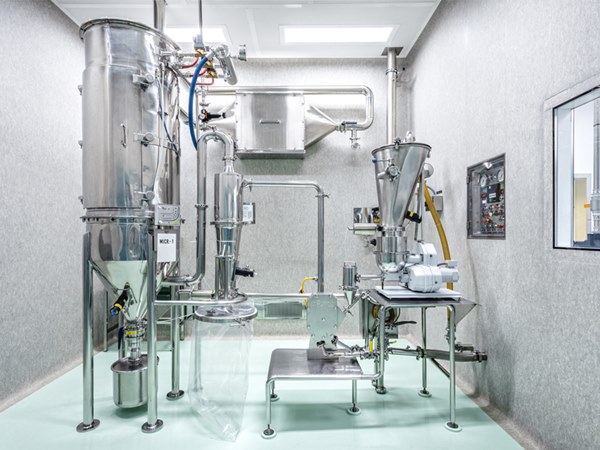The manufacturing sector is constantly evolving, with the demand for higher productivity, improved product quality, and cost efficiency growing across industries. To meet these expectations, manufacturers are increasingly turning to advanced technologies that optimize production processes. One such technology making significant strides in fine powder production is the RINA Jet-Mill.
This high-performance jet milling system is revolutionizing the manufacturing landscape by enhancing productivity, reducing energy consumption, and delivering superior powder quality. In this article, we will explore how the Jet-Mill boosts productivity in the manufacturing sector, its key features, benefits, and applications across industries.
Understanding the RINA Jet-Mill
The RINA Jet-Mill is a state-of-the-art air jet milling system that utilizes high-pressure air to accelerate particles to supersonic speeds, causing them to collide and break into finer particles. This milling technique allows for the production of ultra-fine powders with controlled particle size distribution without generating heat or physical contact between surfaces, which could lead to contamination.
Jet milling has long been known for its ability to produce high-quality powders, especially for heat-sensitive or brittle materials. The Jet-Mill, with its advanced design and optimization features, takes this technology to the next level, offering improvements in efficiency, cost-effectiveness, and scalability.
Key Features of the RINA Jet-Mill
The RINA Jet-Mill is designed to optimize the fine powder milling process across a variety of industries. Some of the key features that contribute to its ability to boost productivity include:
- High-Performance Particle Size Reduction: One of the most important aspects of the RINA Jet-Mill is its ability to achieve a precise and consistent particle size distribution, typically in the sub-micron to micron range. This is essential for industries where specific powder characteristics are critical to product performance, such as in pharmaceuticals or high-end chemicals.
- Energy Efficiency: The Jet-Mill is engineered for low energy consumption. It utilizes compressed air to accelerate particles, minimizing the need for mechanical grinding or friction-based methods that typically consume large amounts of energy. As energy costs continue to rise, this feature not only reduces operational expenses but also makes the process more sustainable.
- Closed-Loop Airflow System: The closed-loop airflow system ensures that air is efficiently recirculated within the milling chamber, optimizing air pressure and reducing the amount of air required for the milling process. This contributes to both energy efficiency and reduced wear on the system, extending the lifespan of the equipment.
- Minimal Heat Generation: Unlike traditional mechanical milling systems that often generate excessive heat, the Jet-Mill operates at low temperatures, preventing heat-sensitive materials from degrading during processing. This feature is particularly beneficial in industries like pharmaceuticals and food processing, where product integrity is essential.
- Scalability and Versatility: The Jet-Mill is scalable and adaptable to various production volumes, making it suitable for both small-batch processing and large-scale industrial operations. It is also versatile enough to handle a wide range of materials, including fragile, hard, or abrasive substances, making it a valuable asset for multiple manufacturing sectors.
How the RINA Jet-Mill Boosts Productivity
The Jet-Mill’s design and features have a direct impact on manufacturing productivity. Below are several key ways in which this advanced jet milling technology enhances productivity in the manufacturing sector:
- Faster Production Cycles: The Jet-Mill offers superior milling speed compared to traditional grinding methods. With the ability to process materials faster, manufacturers can achieve higher output in less time, reducing production bottlenecks and increasing overall throughput. This improved efficiency leads to quicker turnaround times and more cost-effective production cycles.
- Reduced Downtime: Downtime is one of the biggest challenges in manufacturing, as it leads to lost production time and increased operational costs. The Jet-Mill, with its robust and reliable design, is less prone to mechanical wear and failure compared to other milling systems. The closed-loop system and minimal moving parts reduce maintenance needs and downtime, ensuring that production runs smoothly with fewer interruptions.
- Consistent Product Quality: Maintaining consistent product quality is a challenge in many manufacturing processes. The Jet-Mill’s precise control over particle size distribution ensures that every batch of material meets the desired specifications. Consistent powder quality is crucial for products like pharmaceuticals, food additives, and specialty chemicals, where slight variations in particle size can affect performance or regulatory compliance.
- Lower Operational Costs: The energy-efficient nature of the Jet-Mill reduces the cost of energy consumption, which is one of the largest operational expenses in manufacturing. By reducing energy use without compromising performance, the Jet-Mill helps manufacturers maintain competitive pricing and improve profit margins. Furthermore, the system’s minimal wear and tear means fewer maintenance costs over time, leading to even further savings.
- Waste Reduction and Better Yield: Traditional milling processes often result in higher levels of waste due to inefficiencies or inconsistent particle size. The Jet-Mill’s precision and ability to produce fine powders with minimal loss ensure that manufacturers can maximize the use of raw materials and reduce waste. This not only boosts productivity but also supports sustainable manufacturing practices by improving material utilization.
- Flexibility for Various Materials: The Jet-Mill’s versatility allows manufacturers to process a wide range of materials with varying properties. This flexibility is key to enhancing productivity in sectors that require different types of powders for diverse applications. Whether processing heat-sensitive organic compounds or hard minerals, the mill can be adapted to suit the specific requirements of different materials, enabling manufacturers to expand their product offerings.
Conclusion
The RINA Jet-Mill offers a transformative solution for boosting productivity in the manufacturing sector. By providing fast, efficient, and cost-effective fine powder processing, it helps manufacturers reduce production times, minimize waste, lower energy consumption, and maintain consistent product quality. With its versatility and ability to process a wide range of materials, the Jet-Mill is an invaluable tool for industries such as pharmaceuticals, chemicals, food processing, and materials science.



